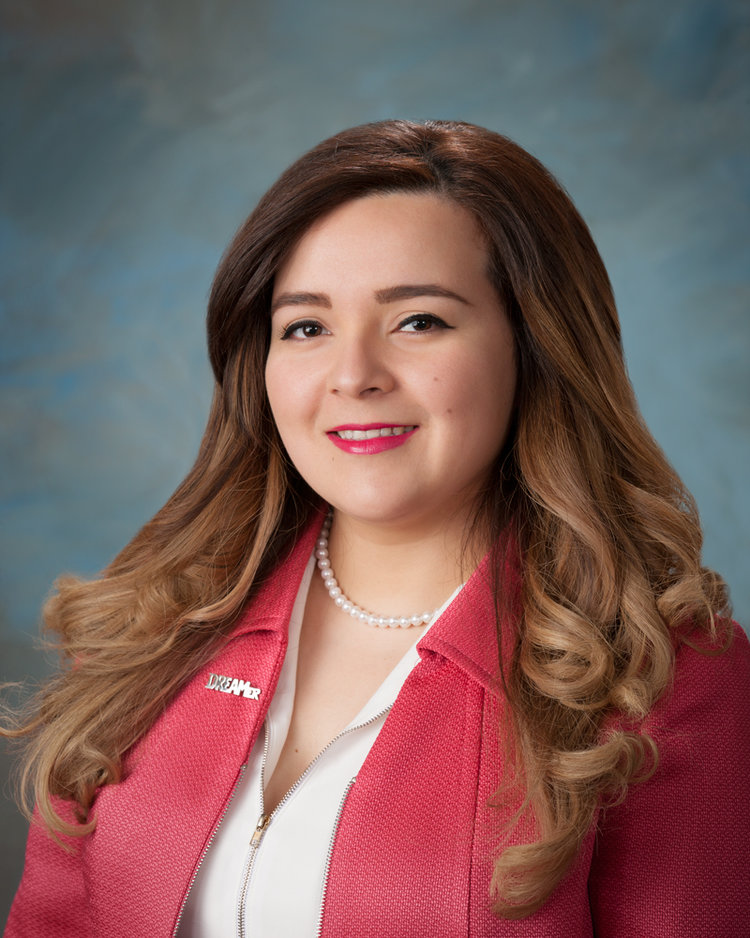Personal hurdles drive innovation among ASU student entrepreneurs
Immigration aid, anxiety-reducing device among winning New Venture projects
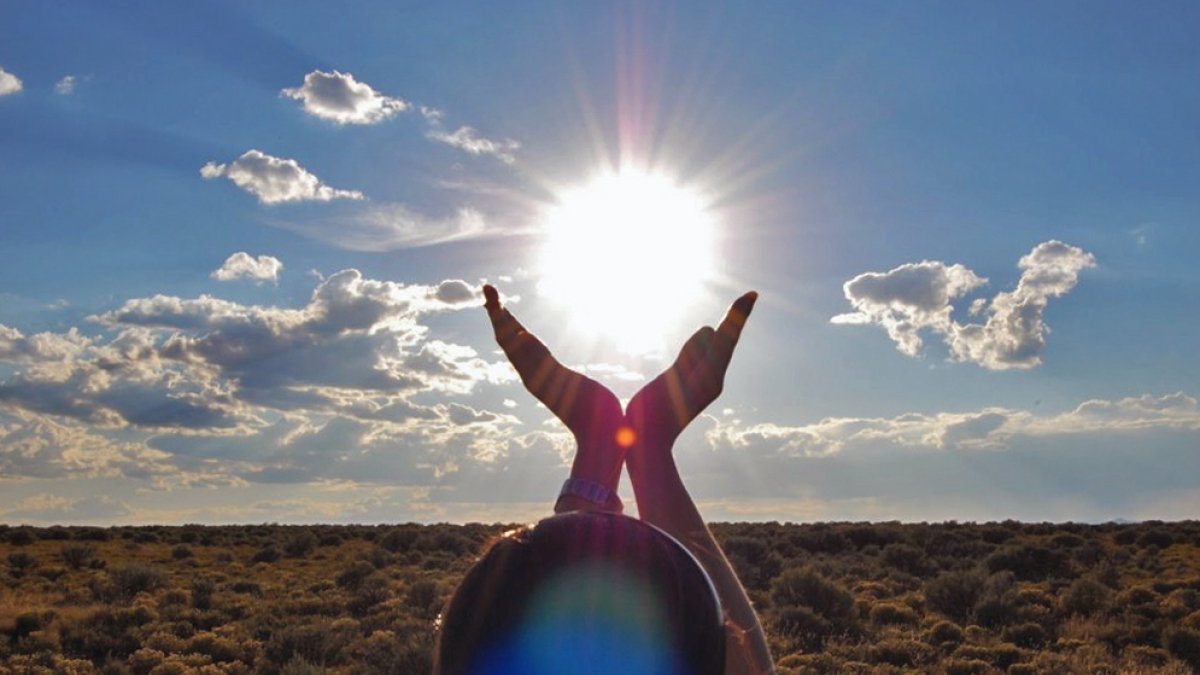
Necessity — and sometimes desperation — drive innovation, and several Arizona State University students have been rewarded for creating amazing solutions to problems they dealt with firsthand.
A woman who faced obstacles in her path to citizenship and a man who watched his newborn son struggle were among the members of five teams that won cash and services for their inventions at the New Venture Challenge entrepreneurial competition recently. The teams divided a $100,000 cash prize and $25,000 in services.
This spring, 10 student-led companies were selected to take a class taught by Scott Wald, a software entrepreneur who earned an MBA from ASU. They worked with Wald and other mentors on specific areas of entrepreneurship, such as financial forecasting and using storytelling. The five finalists pitched their ventures on May 5, winning cash or services such as accounting help, marketing and space.
Tanairi Ochoa-Martinez
Tanairi Ochoa-Martinez shared her own immigration story in describing her venture. Ochoa-Martinez, who earned a master’s of public administration degree this week, created Mi Beneficio Legal, a web platform that helps Spanish-speakers navigate and fill out government forms to acquire legal status or get a green card to work.
“I am the customer,” she said. “I was undocumented, and I became a citizen a year ago. I have lived the fears, and I have felt lonely. I have felt that nobody was able to help me.”
Ochoa-Martinez said the $10,000 cash investment and $5,000 worth of services she won from New Venture will pay for software development and testing the platform this summer. She hopes to launch in the fall.
Spanish-speaking users will log onto Mi Beneficio Legal and choose a form to fill out. The platform will ask a series of questions in Spanish that the users answer, and at the end the form is automatically filled out. An avatar called “Lupe” will pop up to guide them. The goal is to simplify the process and reduce errors through an online format that is more affordable than going to an attorney.
Ochoa-Martinez thought of the idea after helping her father and numerous family members with their paperwork.
“I don’t have the capacity to help everyone. Why not create something that could replicate what I can do?”
The other teams that won cash and services at the New Venture Challenge were:
• KinderFeed, a feeding system for babies who have cleft palates, won $10,000 in cash and $5,000 in services. The CEO of the company, Callie LaMarche, was inspired after working with teammate Patrick McFarland, whose son was born with a cleft palate, which makes feeding very difficult. Existing bottles for babies with this condition are difficult to use.
“Patrick told me a story of when he was feeding his son, he would have to stop feeding, clean out the bottle and then start feeding his son again. I can only imagine how devastating this would be for a parent,” she said. Both are biomedical engineering majors.
The KinderFeed bottle system is leak-free and easier to squeeze formula into the baby’s mouth than existing bottles.
• Billibars, a detachable handlebar system for bicycles, won $35,000 in cash and $12,500 in services. Founder Trevor Heder worked as a professional bicycle mechanic to pay his way as an undergrad at Brigham Young University, where he earned a degree in Mandarin. Then he lived in China for a year, where he was a consultant for an industrial design company.
“I knew I needed to make a pivot in my career choice,” said Heder, who is now a graduate student in industrial design at ASU.
Heder, who also lived for two years in Taiwan, saw many people using bikes — and also having to store them in tiny apartments.
“That’s what sparked the idea of trying to solve the bike problem. I thought, ‘You’ve got to do something about these handlebars — they’re always grabbing you when you walk in the door,” he said.
Billibars, which come in three styles, can be used on any bike and attach and detach quickly. An accessory turns the handlebars into a wall rack for the bike. Heder has already secured a global patent and hopes to sell the system for about $100.
• AVMSec, a network security system, won $20,000 in cash and $2,500 in services.
CEO Ankur Chowdary, a doctoral student in computer science, has already gotten $1.8 million in grants — including from the U.S. Department of Defense — to research his system.
Chowdary used a photo of cartoon duck to illustrate his concept.
“If this duck is setting statically in front of you, it’s easy to shoot the duck,” he said.
“But imagine the duck is flying all around the place. It’s hard to shoot this duck. We leverage the same concept with security.”
Chowdary said his system can predict attacks and move data around the cloud.
“Users we have identified as secure get access to a key, but for users identified as suspicious, we play a shell game with them. For them, the data is moving around very fast in the cloud, and it’s difficult for them to do any malicious act in the system.”
Chowdary predicts revenue of $100 million by 2021.
• Hoolest Performance Technologies, a company that has created device to reduce performance anxiety, won $25,000 in cash.
Founder Nick Hool, a doctoral student studying the neuroscience of human performance, was inspired by his own experience. In 2011, he was invited to play the World Golf Junior Tournament in Florida.
“I show up at the course, go through my warm-up routine and everything is good until I step up to first tee, and that’s where my anxiety kicked in,” said Hool, who described how his heart was pounding. He played terribly and was eliminated.
He and his team invented wireless ear buds that block the effects of anxiety through vagus nerve stimulation, using small electrical impulses. The impulses slow the heart rate.
Hool said the ear buds would initially be marketed to reduce performance anxiety among athletes, but eventually also for the medical anxiety market, such as people who have post-traumatic stress disorder.
“At Hoolest, we have a vision of helping hundreds of millions of people overcome their anxiety without the use of drugs,” Hool said.
More Science and technology
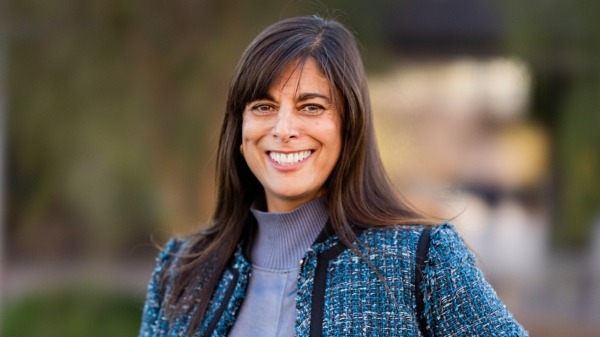
ASU planetary scientist to be inducted into the National Academy of Sciences
The National Academy of Sciences is inducting School of Earth and Space Exploration Director Meenakshi Wadhwa into the 2023 class of new members for her pioneering work in planetary sciences and…
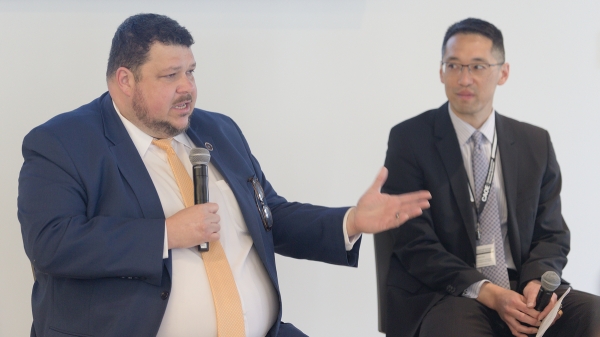
Unlocking the potential of AI for homeland security
“Can we do what we're doing now cheaper, more efficiently, more effectively?” Adam Cox, director in the Office of Strategy and Policy at the Department of Homeland Security Science and Technology…
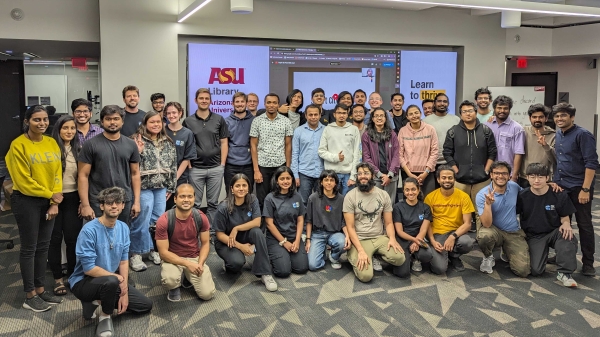
SpaceHACK highlights student solutions to environmental challenges, digital divide
By Adrianna Nine About 250 students from around the world convened online and at Arizona State University on March 22 for the ASU Interplanetary Initiative’s second annual SpaceHACK for…
